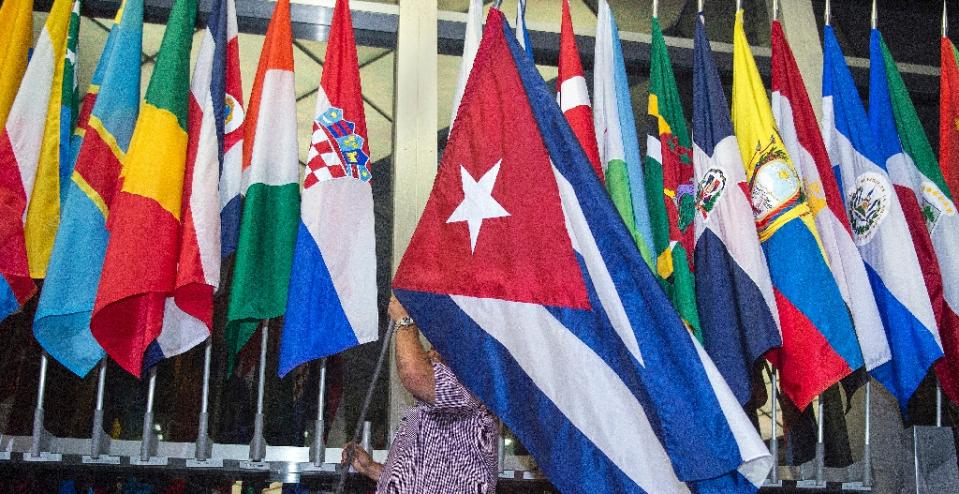The United States and Cuba quietly ushered in a new era of post-Cold War relations on Monday, formally restoring diplomatic ties severed more than five decades ago and re-establishing embassies in each other’s capitals.
Just past the stroke of midnight, the two countries reached a new milestone in the historic thaw that began with a breakthrough announcement by U.S. President Barack Obama and Cuban President Raul Castro on Dec. 17.
Foreign Minister Bruno Rodriguez will preside around 10:30 a.m. (1430 GMT) over the raising of the Cuban flag for the first time in 54 years over a mansion that will again serve as Havana’s embassy in Washington.
The significant symbolic event will be followed by a meeting at the State Department between Secretary of State John Kerry and Rodriguez, the first Cuban foreign minister on an official visit to Washington since the 1959 Cuban Revolution.
Even before the Cubans held their ceremony, the U.S. Interests Section in Havana, long serving as Washington's de facto diplomatic post there, issued a statement announcing that on Monday it "officially became U.S. Embassy Havana."
But no American flag will fly there until a visit by Kerry expected next month. “We wanted the Secretary to be there to oversee these important events,” a State Department official said.
Without fanfare in the pre-dawn hours, maintenance workers hung the Cuban flag in the lobby of the U.S. State Department in Washington where it joined the banners of other countries with which the United States has diplomatic relations.
Differences remain and efforts toward full normalization between the United States and Cuba are expected to proceed slowly. Monday's steps culminated more than two years of negotiations between governments that had long shunned each other.
More than 500 people will attend the Cubans’ festivities in Washington, including members of Congress. No invitations went out to hardline anti-Castro lawmakers. The U.S. delegation will be headed by Assistant Secretary of State Roberta Jacobson.
Kerry and Rodriguez last met in April at the Summit of the Americas in Panama, where Obama and Castro also held talks. Aides see the outreach to Cuba as a boost to Obama's legacy.
The re-establishment of embassies, agreed to on July 1, opens a new chapter of engagement by easing government contacts heavily constrained since the United States broke off relations in 1961.
A full-service U.S. mission in Havana could offer some reassurance to companies interested in investing in Cuba and also help seed the way for more travel to the island by American citizens which is still heavily restricted,
The normalization process has been slowed by lingering disputes, including over human rights, as well as Havana's desire to keep a tight rein on its society and state-run economy.
A U.S. economic embargo against Cuba will remain in place, and only Congress can lift it, something that majority Republicans are unlikely to do anytime soon despite Obama's call for it to be rescinded.
Like us on Facebook or follow us on Twitter to get the latest news about Vietnam!























































